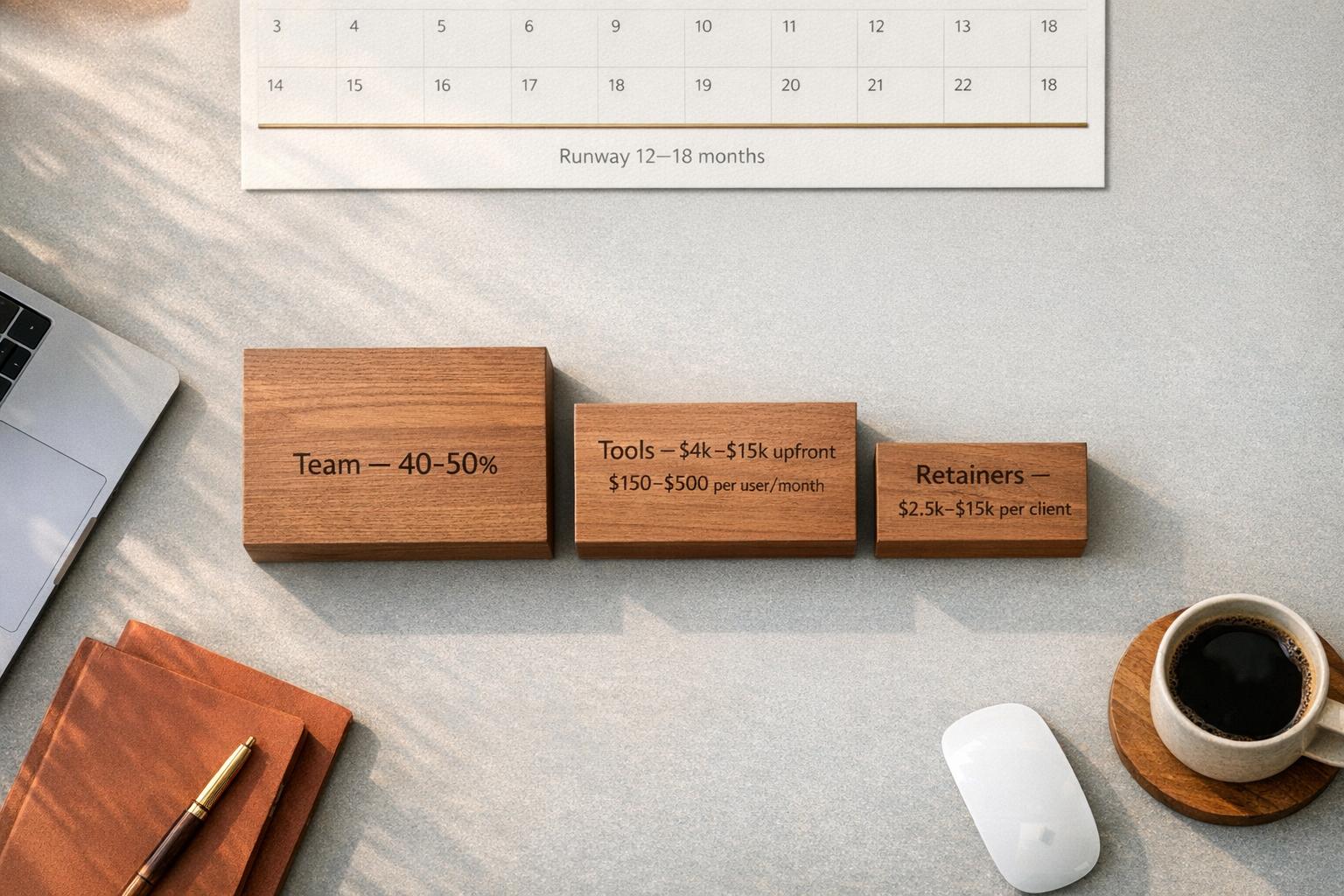
Some Background: My Small Business Journey
After many years working in the corporate sector, I started my own business in 2003 (project management for corporates in Asia) however the genesis of setting this up occurred three years prior. While I had the core skills to take this on work, I needed time to:
- Gain the relevant Consulting Industry experience
- Establish relationships with potential sub-contractors and clients... and
- Income to build up cash reserves to cover the inevitable lean times.
I also used those three years to develop a clear position on how my business would stand out from competitors, clearly define who my target clients would be and determine the ‘art/science’ of how to price my service offering.
And guess what… things didn’t go to plan!
The first year was OK, the second year was terrible (thank goodness I had cash reserves) but after tweaking my business model, things really kicked on in year three and didn’t stop until COVID hit 15 years later. Quite the journey!
This article is based on reflections from my experiences along with some best practices on setting up and running your own business. I hope you find it useful!
This Blog will Cover
- Finding and Refining Your Business Idea: How to discover and evaluate a viable business idea based on market needs, your personal passions and talents.
- The Importance of Research and Planning: Why you should undertake market research and create a detailed business plan.
- Navigating Legal and Financial Setups: Determining the most appropriate legal structure for your business and the right ‘mix’ of funding options.
- Building a Strong Brand: Tips on developing your brand and establishing a strong online presence to attract and retain customers.
- Launching Your Business: An approach for executing a successful launch.
- Post-Launch Operations and Growth: Tips on managing daily operations and scaling your business.
Start with Self Reflection and Find 'The Spark'
The journey needs to start, some self-reflection. What are you good at? What do you love doing? What bores you? What excites you? What activities/tasks keep you totally focused and make you lose track of time? Finding/starting a business that makes you proud and happy is critical.
Having a good perspective on what you want to do will help you focus on finding and articulating your idea. This idea might come from a personal passion, a noticed gap in the market, or a unique innovation. It’s important to evaluate your idea critically:
- Is there a demand for this product or service?
- What does the competition look like?
- How will your business stand out from competitors?
- Are the costs to create your offering likely to be substantially lower than what they’d sell for?
Research, Planning and Structure
Market research is crucial. Understand your target audience and how you will appeal to them, study your competitors and understand how you can differentiate your offering. Understand the costs, pricing, profit margins, cashflows and breakeven points of your business.
Use IdeaFloat to create your business plan. It is critical you have a good understanding of your proposed offerings, marketing strategies and financial projections.
Legal considerations and determining how to set up your business comes next. Choosing the right legal structure for your business (e.g., sole proprietorship, partnership, corporation) affects everything from your liability to your taxes. Register your business, obtain necessary licenses, permits and consider intellectual property protection if relevant.
I strongly recommend establishing a relationship with an Accountant in the set-up phase. Find one that has experience supporting businesses like the one you are starting. An Accountant should be a ‘business partner’, providing good advice and support in the set-up phase and beyond.
Funding and Business Partners
Next, you need to secure your funding. Most businesses start with a mix of funding sources. Personal savings is a must (you need to have ‘skin in the game’ to attract other funding sources). Banks and credit unions typically require some sort of ‘bricks and mortar’ security. Other options include investments from venture capitalists or angel investors and/or Crowdfunding campaigns. All sources will require a solid business case.
Creating a network of business partners is often overlooked when setting up a new business. In addition to an Accountant and Lawyer, depending on your business you might need suppliers or support to recruit skilled resources. Also where relevant, leverage business/industry bodies for advice and subject matter expertise.
Branding and Launching Your Business
Now it's time to build your brand and online presence. Get creative and build your own brand (there are a lot of great AI tools for this now!). You’ll need a logo, a colour scheme and punchy statements that quickly explains your Unique Value Proposition, all rolled up into a professional website. Utilize social media to reach out and engage with your target customer base before the launch.
Launching your business, determining the best way to open your doors for the first time. I always recommend a soft launch to road test your work processes and gather feedback from initial customers before a full-scale launch. When you have ironed out any major issues and tweaked your product/service offering from customer feedback, consider some sort of opening event to create buzz and gain customers attention.
Running your business - daily operations and forward planning. With the launch complete, you can focus on managing and growing your business. This includes customer service, maintaining quality, managing finances, and scaling up. Your Accountant can be a good help to set up simple systems to track key metrics that monitor business profitability and efficiency. I also recommend holding regular meetings with your work team to checkpoint on ‘what’s working well and what can be better’. Also consider joining a relevant industry association to keep up to date with industry trends any changes in the market.
My Top Five Recommendations for Your Journey
- No matter how good your planning, know that you will make mistakes. That’s OK, don’t bury them… learn from them!
- Make sure your family and close friends are OK with what you’re doing and support you.
- If your business is ‘team based’ surround yourself with skilled people who care. If feasible, let them share in the profits.
- Be part of the industry. Join associations, know your market and even know your competitors personally (competitors could be future partners!).
- Establish an informal ‘mentor group’. Such as an Accountant, a local government business advisory person, maybe a key Supplier and/or a Solicitor (depends on your business). Meet with these mentors separately every three months or so and get their perspectives on how you’re going.
Lastly, be prepared to work hard, but remember you’re working for YOU! GOOD LUCK!
Get the newest tips and tricks of starting your business!


